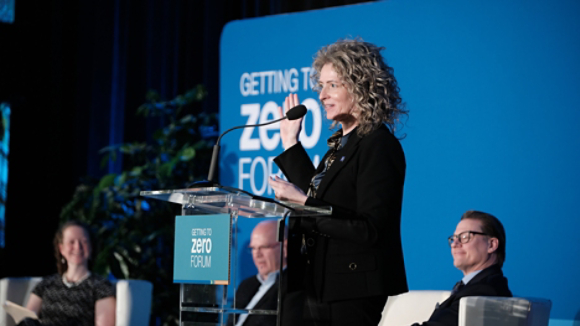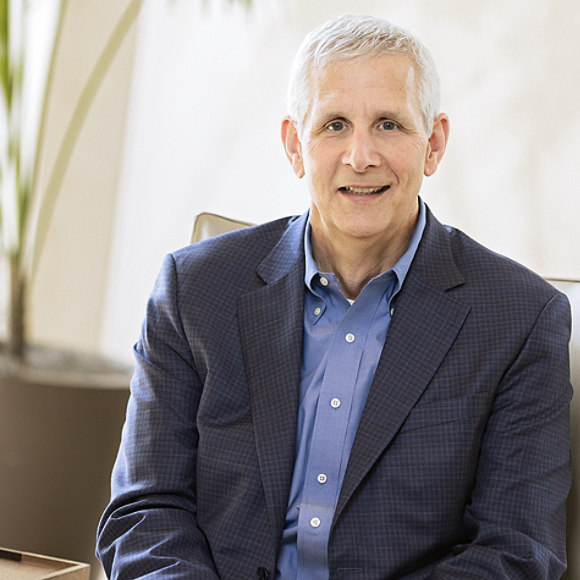April 24, 2023
Accelerating Decarbonization through Innovations in Refrigerated Transport
How innovations in refrigerated cold chain transport can accelerate the decarbonization of our roads and cities

As vehicle manufacturers work towards electrification, innovative transport refrigeration technologies offer a critical but often-overlooked path to the decarbonization of our cities.
In the European Union, commercial vehicles, including trucks and transit buses, are responsible for roughly a quarter of road transport CO2 emissions and nearly 6% of total emissions. So far, industry and government leaders have prioritized making electric passenger cars more available and affordable in order to reduce dependence on fossil fuels. The European Parliament voted to ban the sale of petrol and diesel vehicles by 2035 and will work with member states to reach this goal.
Unfortunately, these measures fail to consider the fact that freight traffic, including refrigerated trucks and vans, is also increasing throughout the region. According to Eurostat, 3.9 million trucks were registered in the EU in 2020. Among EU member states in 2020, Poland had the largest fleet of trucks with a share of 18.3%, and Germany had the second largest fleet with 14.3%.
Electric refrigeration accelerates the path to net-zero
Electrification solutions in refrigeration reduce carbon emissions from the vans and trucks that transport.
Many of these heavy vehicles are the temperature-controlled refrigerated vehicles forming the so-called "cold chain," which is essential to Europe's economy. These vehicles transport fresh and frozen foods and life-saving medicines and vaccines. But they are also among the biggest sources of transport emissions.
Traditionally, on-board cooling systems are largely powered by a vehicle's engine. But even when connected to an electric vehicle, these refrigeration units often still rely on a separate diesel/gasoline generator to power them and prevent refrigerated cargo from spoiling throughout the transport. By upgrading to electric refrigeration technologies, vehicles can completely avoid these emissions, allowing the industry to fully transition to electric freight transport on European roads.
Leading innovators in this field are finding bold solutions for emission-free refrigerated transport, and quickly. In fact, sustainable innovations for refrigerated transport are progressing even more rapidly than those for electric vehicles. Converting car factories to EV production requires huge investments of both funding and time. In contrast, low-carbon refrigerated transport technology already exists for vehicles that run on almost any fuel source, offering a faster way to decarbonize the cold chain.
Leading the way in cold chain transport
In Germany, Mercedes-Benz, in cooperation with Thermo King, has developed the eSprinter Pharma, the first all-electric Mercedes van for pharmaceutical products. The eSprinter Pharma refrigeration technology pulls from two sources – the vehicle's E-200 electrical system and a lithium-ion battery – to ensure a manually adjustable, consistently cool temperature, even when the vehicle stops or the van door opens for deliveries.
While reducing emissions, electric vehicles and refrigeration systems offer other benefits, too. As more people move to metropolitan areas, chilled food deliveries will increasingly take place in urban and densely populated areas. All-electric refrigeration units are significantly quieter than conventional units, resulting in a significant reduction in noise pollution and meaning deliveries can be made day or night with little disruption. Electrification of refrigerated trucks also offers more consistent temperature regulation, meaning less food is wasted from manufacture to store. Food losses now contribute about 10 percent of annual global carbon emissions.
A bold commitment to comprehensive solutions
In order to pave the way to a net-zero future, Thermo King has committed US $100 million to innovate and deliver an all-electric product in every segment of the cold chain in EMEA by 2023 and in the Americas by 2025.
Thermo King's all-electric portfolio, evolve™, will lead the way with electric cooling solutions for trucks, trailers, rail, air and sea transport. The electric portfolio will play an important role in meeting Trane Technologies’ 2030 sustainability commitments, including the Gigaton Challenge to reduce customer emissions by 1 billion tons.
Government and industry collaboration will be necessary to accelerate the widespread adoption of these innovations and allow for the full electrification of refrigerated transport vehicles. As we work together to meet the United Nations’ goal of net zero carbon emissions worldwide by 2050, the electrification of the cold chain and its essential systems will play a critical role.
Topic Tags

 English
English





















